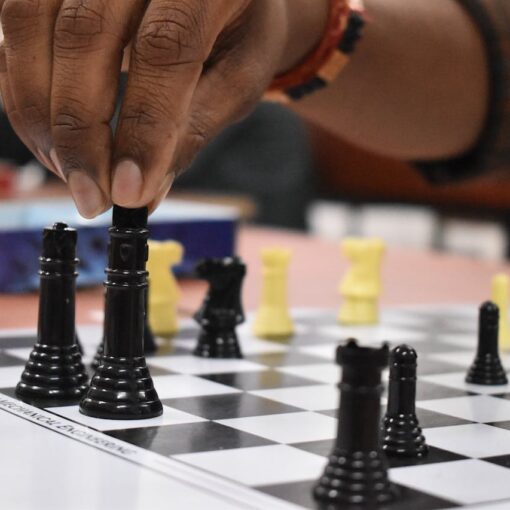Integrating strategic thinking into your daily routine can bring numerous benefits to your personal and professional life. Strategic thinking involves analyzing information, identifying opportunities, and making decisions that align with your goals. By incorporating strategic thinking into your daily routine, you can develop a proactive mindset that enables you to anticipate and address challenges before they arise.
Individuals who practice strategic thinking are more likely to achieve their objectives and succeed in their careers. According to a Harvard Business Review article, “Make Time for Strategic Thinking Every Day,” making strategic thinking a routine can help individuals become better problem-solvers and decision-makers. By dedicating time each day to analyze data, reflect on experiences, and plan for the future, individuals can develop a strategic mindset that enables them to achieve their goals.
Why Strategic Thinking is Important
Strategic thinking is an essential skill that can help individuals achieve their goals and succeed in their personal and professional lives. This section will explore the benefits of strategic thinking and how it can help individuals achieve their goals.
The Benefits of Strategic Thinking
Strategic thinking involves analyzing complex problems, identifying opportunities, and developing effective solutions. It helps individuals to see the big picture and make informed decisions that align with their goals. Here are some benefits of strategic thinking:
- Improved decision-making: Strategic thinking helps individuals to make informed decisions based on data and analysis, rather than emotions or biases.
- Better problem-solving: Strategic thinking involves looking at problems from different angles and developing creative solutions.
- Increased efficiency: Strategic thinking helps individuals to prioritize tasks and focus on the most important activities.
- Enhanced leadership skills: Strategic thinking is a valuable skill for leaders, as it helps them to develop long-term plans and guide their teams towards success.
How Strategic Thinking Helps You Achieve Your Goals
Strategic thinking is essential for achieving personal and professional goals. It involves setting clear objectives, developing a plan of action, and monitoring progress towards those objectives. Here are some ways in which strategic thinking can help individuals achieve their goals:
| Benefit | Description |
|---|---|
| Clarity | Strategic thinking helps individuals to clarify their goals and develop a clear plan of action to achieve them. |
| Focus | Strategic thinking helps individuals to focus on the most important tasks and avoid distractions. |
| Flexibility | Strategic thinking allows individuals to adapt to changing circumstances and adjust their plans accordingly. |
| Efficiency | Strategic thinking helps individuals to use their time and resources more efficiently, leading to greater productivity. |
Overall, strategic thinking is a valuable skill that can help individuals achieve their goals and succeed in their personal and professional lives.
How to Incorporate Strategic Thinking into Your Daily Routine
Integrating strategic thinking into your daily routine can be challenging, but it is an essential step towards achieving your long-term goals. Here are some tips on how to incorporate strategic thinking into your daily routine:
Identifying Your Priorities
The first step towards incorporating strategic thinking into your daily routine is identifying your priorities. You need to have a clear understanding of what you want to achieve in the short and long term. This will help you focus your energy and resources on the most important tasks and activities.
One way to identify your priorities is to create a list of your goals and objectives. You can then rank them based on their importance and urgency. This will help you determine which tasks you need to focus on first and which ones can wait.
Creating a Plan
Once you have identified your priorities, the next step is to create a plan. A plan will help you stay organized and focused on your goals. It will also help you track your progress and make adjustments as needed.
When creating a plan, it is important to be specific and realistic. Break down your goals into smaller, manageable tasks and assign deadlines to each one. This will help you avoid feeling overwhelmed and ensure that you are making progress towards your goals.
Staying Focused and Motivated
Staying focused and motivated is essential when incorporating strategic thinking into your daily routine. It can be easy to get distracted and lose sight of your goals, especially when faced with unexpected challenges and setbacks.
One way to stay focused and motivated is to track your progress and celebrate your successes. This will help you stay motivated and inspired to keep moving forward. You can also surround yourself with supportive people who share your goals and values.
Another way to stay focused and motivated is to take breaks and practice self-care. Taking breaks can help you recharge and avoid burnout. Practicing self-care, such as exercise and meditation, can also help you stay focused and motivated.
Examples of Strategic Thinking in Action
Integrating strategic thinking into daily routines can have many benefits. Here are a few examples of how strategic thinking can be applied in different areas of life:
Personal Finance
Strategic thinking can help individuals make better financial decisions. For example, instead of spending money impulsively, someone who practices strategic thinking might create a budget and prioritize their spending based on their long-term financial goals. They may also invest in stocks or other assets that have the potential for long-term growth, rather than just focusing on short-term gains.
Another example of strategic thinking in personal finance is creating an emergency fund. By setting aside money for unexpected expenses, individuals can avoid going into debt and maintain their financial stability in the long run.
Career Development
Strategic thinking can also be applied to career development. For instance, an employee who practices strategic thinking may identify their strengths and weaknesses and create a plan to improve their skills and knowledge. They may also network with colleagues and seek out opportunities for professional development to further their career goals.
Another example of strategic thinking in career development is setting clear and measurable goals. By identifying what they want to achieve in their career and breaking it down into actionable steps, individuals can stay focused and motivated to reach their objectives.
Relationships
Strategic thinking can also be applied to personal relationships. For example, someone who practices strategic thinking might identify their values and priorities in a relationship and communicate them clearly with their partner. They may also identify potential conflicts and work to resolve them before they become bigger issues.
Another example of strategic thinking in relationships is setting boundaries. By establishing clear boundaries and communicating them with their partner, individuals can create a healthier and more fulfilling relationship.
Challenges to Overcome
Integrating strategic thinking into one’s daily routine can be challenging, but the benefits are well worth it. Here are some common challenges individuals may face when attempting to integrate strategic thinking into their daily routine:
Overcoming Procrastination
One of the biggest challenges to integrating strategic thinking into one’s daily routine is overcoming procrastination. Procrastination can be a major obstacle to strategic thinking, as it can prevent individuals from taking the necessary steps to achieve their goals. To overcome procrastination, individuals should:
- Break tasks down into smaller, more manageable pieces
- Set deadlines for each task
- Eliminate distractions, such as social media or television
- Focus on the benefits of completing the task
Dealing with Uncertainty
Another challenge to integrating strategic thinking into one’s daily routine is dealing with uncertainty. Uncertainty can be a major source of stress and anxiety, as it can make it difficult to make decisions and take action. To deal with uncertainty, individuals should:
- Focus on what is known, rather than what is unknown
- Seek out information to fill in knowledge gaps
- Develop contingency plans for different scenarios
- Stay flexible and adaptable in the face of change
Managing Change
Finally, managing change can be a challenge when integrating strategic thinking into one’s daily routine. Change can be disruptive and difficult to manage, but it is often necessary to achieve strategic goals. To manage change, individuals should:
- Communicate clearly and frequently with stakeholders
- Develop a plan for managing the change process
- Anticipate and address potential obstacles and resistance
- Stay focused on the strategic goals and objectives
Conclusion
Integrating strategic thinking into one’s daily routine can have significant benefits in both personal and professional life. By developing the ability to think strategically, individuals can make better decisions, anticipate potential problems, and identify opportunities for growth.
Through exposure to strategic roles, broad information synthesis, and participation in a culture of curiosity, individuals can develop their strategic thinking skills. Engaging in ongoing learning and staying up-to-date with industry trends can also help individuals stay ahead of the curve and make informed decisions.
By applying strategic thinking skills to their daily routines, individuals can become more proactive and less reactive, which can lead to improved productivity and increased success. Additionally, strategic thinking can help individuals align their goals and priorities, both personally and professionally, and work towards achieving them.
Overall, integrating strategic thinking into one’s daily routine can be a valuable investment in one’s future success. By developing this skill set, individuals can become more effective leaders, make better decisions, and achieve their goals with greater ease.





